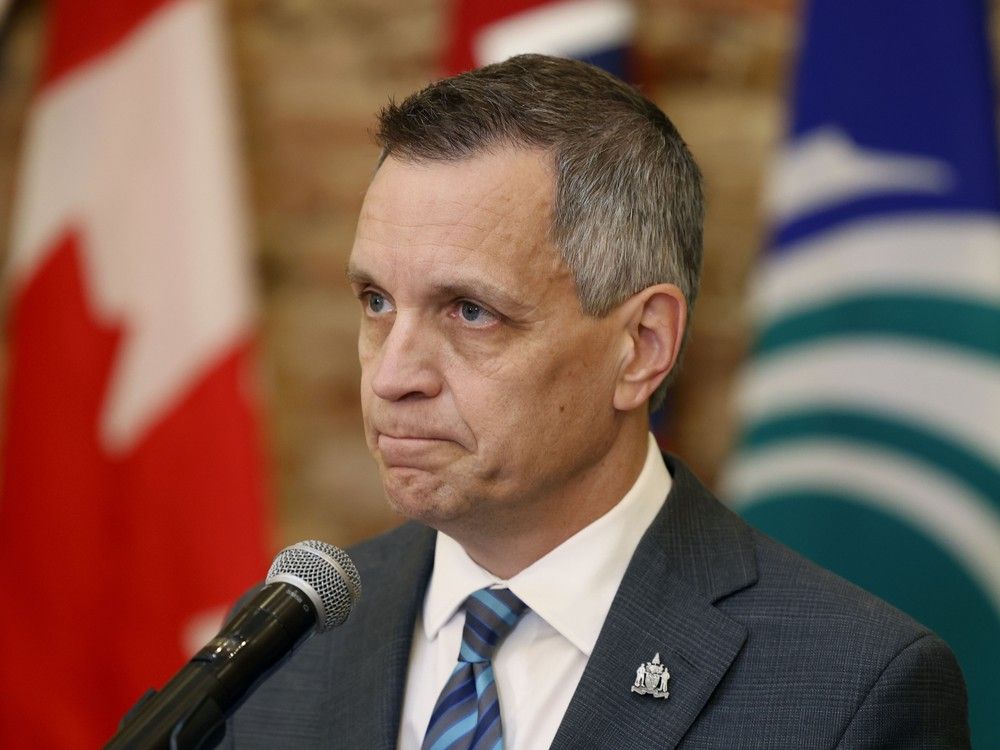OTTAWA—Negotiations with the White House to secure a reprieve for key sectors hammered by strategic tariffs are not at an impasse, says Prime Minister Mark Carney’s point-person on Canada-U.S. trade.
“The conversations have been focused on trying to get relief for those Canadian sectors that are the most integrated of other trading partners,” said Dominic LeBlanc, Carney’s cabinet lead on Canada’s months-long trade dispute with U.S. President Donald Trump.
In an interview with the Star Friday, LeBlanc, who met with U.S. Commerce Secretary Howard Lutnick in Washington this week, said officials on both sides were “making progress” on that front.
“That’s sort of where we are. We’re not at a dead end. I don’t see a dead end yet,” the minister said.
The Carney Liberals have been facing the heat for the prime minister’s week-old decision to lift Ottawa’s retaliatory tariffs on $30 billion worth of American goods that comply with the Canada-U.S.-Mexico Agreement (CUSMA). The move came without any tangible concessions, including any easing of the disruptive sectoral tariffs Trump has levelled against Canadian steel, aluminum, autos, softwood lumber and copper.
Targeting goods compliant with the trade pact initially happened, in part, to prompt American politicians and businesses into pressuring Trump to halt his offensive.
LeBlanc, like Carney, defended the decision to pull that prong of Canada’s counterattack, saying that it was not known at the time that the White House would later grant Ottawa a carveout that exempted Canadian goods covered by CUSMA from U.S. tariffs.
“If we’re going to get to a conversation around … reviewing the CUSMA accord, which is part of the accord that will happen in 2026 … I think we should not be incongruous with the way the Americans are applying the CUSMA exemption,” LeBlanc said.
The challenge so far, the minister said, has been Trump’s ever-shifting goalposts in his tariff strategy, which initially rolled out under the rationale that the flow of irregular migration and deadly opioids across the border constituted a national emergency, and quickly morphed into other targets and justifications.
“We forget in six months, seven months, eight months, there have been various iterations of his plans,” LeBlanc said.
When asked whether he was open to working with Pierre Poilievre’s Conservatives to plot Canada’s next steps — assistance the Tory leader has said he has directly offered Carney — the minister said he would be happy to unlock those channels come fall.
“I certainly take Mr. Poilievre’s offer in good faith. And I would be happy myself to talk with him and his critics when we’re back in Ottawa in two weeks,” LeBlanc said, adding that if the Conservatives have “friends in the U.S. Congress,” he welcomed the fostering of those connections.
“I take that as a positive sign … and I think everybody would benefit from avoiding partisan fault lines,” the minister said.
A top file on LeBlanc’s desk when Parliament resumes mid-September will be the implementation of the Building Canada Act, the Liberals’ major projects law.
The legislation grants Ottawa temporary powers to bypass existing environmental laws and regulations to spur “nation-building” resource and infrastructure projects on Canadian soil, primarily in response to America’s trade aggression.
On Friday, the prime minister announced the formation of the major projects office (MPO) that the law tasks with overseeing the approvals process for the projects.
According to a news release from the prime minister’s office, the MPO will be headquartered in Calgary and lead by Dawn Farrell, the former head and current board chair of the Trans Mountain Corporation.
“Its mandate is to serve as a single point of contact to get nation-building projects built faster. It will do so in two principal ways. First, by streamlining and accelerating regulatory approval processes. Second, by helping to structure and co-ordinate financing of these projects as needed,” the news release noted.
LeBlanc said it will be up to Ottawa, provincial and territorial governments, private sector entities, and Indigenous groups to propose projects designed to meet the law’s “nation-building” criteria, and then the MPO will advise the federal government on how to move forward with proposals in the most efficient way.
The Liberals are expected to announce an initial series of projects in the coming weeks, with Carney signalling this week that port expansions in the Port of Montreal and northern Manitoba’s Port of Churchill could be among the first approvals.
LeBlanc spent the summer attending a trio of summits with First Nations, Inuit and Métis leaders who outlined their concerns with the law, which prompted fierce backlash earlier this year over worries the bill and its rushed passage would lead to the trampling of Indigenous rights.
While the government said Friday it would announce next month the Indigenous advisory council meant to work alongside the MPO, LeBlanc said he found the summits an “instructive” exercise in learning about how rights holders hope to work with Ottawa.
“I’m optimistic that there’s a desire to find the right way to do these projects together. And ideally, if there’s an equity participation in many of them, it’ll bring long-term, enduring benefits to those communities,” LeBlanc said.
Error! Sorry, there was an error processing your request.
There was a problem with the recaptcha. Please try again.
You may unsubscribe at any time. By signing up, you agree to our terms of use and privacy policy. This site is protected by reCAPTCHA and the Google privacy policy and terms of service apply.
Want more of the latest from us? Sign up for more at our newsletter page.



